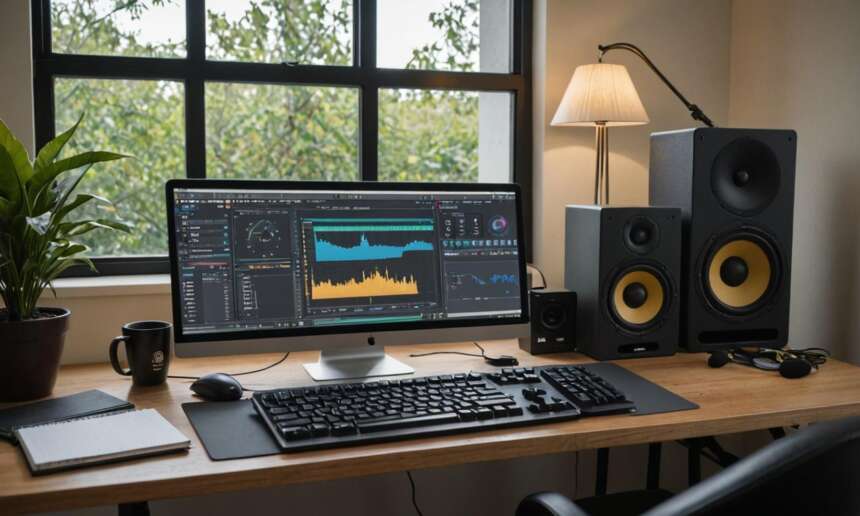Curious about the earnings of music producers in the United Kingdom? Delving into the financial landscape of this profession can provide insights into the industry’s dynamics and potential career paths.
Understanding Music Production Income
Music production income in the UK varies significantly based on numerous factors such as experience, expertise, genre specialization, industry connections, and market demand. It’s essential to recognize that music production is not a uniform field; rather, it encompasses a broad spectrum of roles and responsibilities.
Earnings Range
Music producers’ earnings in the UK can range from modest to substantial, depending on their level of success and the projects they undertake. Beginners or those starting out may earn less initially, while established producers with a robust portfolio can command higher fees.
Factors Influencing Earnings
Several factors influence how much a music producer can make:
- Experience: Seasoned producers with a track record of successful projects often command higher fees.
- Genre: Different music genres have distinct market dynamics, with some being more lucrative than others.
- Clientele: Working with well-known artists or reputable record labels can lead to higher-paying opportunities.
- Skills and Specializations: Producers with specialized skills such as sound engineering or mixing/mastering may earn more.
- Industry Connections: Networking and building relationships within the music industry can open doors to lucrative projects.
Industry Insights
According to industry sources and anecdotal evidence, the average income for music producers in the UK can range from £20,000 to £100,000 or more per year. However, it’s crucial to note that these figures are approximate and can vary widely.
Freelance vs. Employment
Many music producers in the UK work as freelancers, offering their services on a project-by-project basis. Freelancers often have more flexibility but may also face irregular income streams. On the other hand, some producers opt for full-time employment with recording studios, production companies, or record labels, which may offer more stability but potentially lower earning potential.
Additional Revenue Streams
Besides direct income from producing music, producers in the UK may also earn money through:
- Royalties from songwriting or production credits
- Music publishing rights
- Live performance royalties
- Merchandise sales
- Teaching or mentoring
While music production can be a rewarding career both creatively and financially, success in this field often requires dedication, skill development, and perseverance. Understanding the factors that influence earnings can help aspiring producers navigate the industry landscape more effectively.
Frequently Asked Questions
Here are some commonly asked questions about the earnings of music producers in the UK:
| Question | Answer |
|---|---|
| 1. How much do beginner music producers typically earn? | Beginner music producers in the UK may earn anywhere from £10,000 to £30,000 per year, but this can vary based on factors such as projects undertaken and market demand. |
| 2. Is there a specific genre that tends to be more lucrative for music producers? | While earnings can vary, genres such as pop, hip-hop, and electronic dance music (EDM) often have higher demand and thus potentially higher earning opportunities for producers. |
| 3. Can music producers earn passive income? | Yes, music producers in the UK can earn passive income through royalties from songwriting or production credits, music publishing rights, and live performance royalties. |
| 4. What skills are most valuable for increasing earnings as a music producer? | Skills such as sound engineering, mixing/mastering, and proficiency with music production software are highly valuable and can command higher fees in the industry. |
| 5. Are there alternative career paths for music producers to increase their income? | Yes, music producers can explore additional revenue streams such as teaching or mentoring aspiring producers, which can supplement their income. |
Networking and Collaboration Opportunities
Networking and collaboration are crucial aspects of a music producer’s career. By connecting with other professionals in the industry, producers can discover new opportunities, expand their client base, and enhance their skills through collaboration on diverse projects.
Online Platforms and Communities
Many online platforms and communities cater to music producers, providing forums for networking, sharing knowledge, and collaborating on projects. Websites like SoundBetter, Splice, and various social media groups offer avenues for producers to connect with artists, songwriters, and other industry professionals.
Industry Events and Workshops
Attending industry events, workshops, and conferences can also facilitate networking opportunities for music producers. Events like music festivals, trade shows, and seminars not only enable producers to showcase their work but also allow them to meet potential clients and collaborators.




